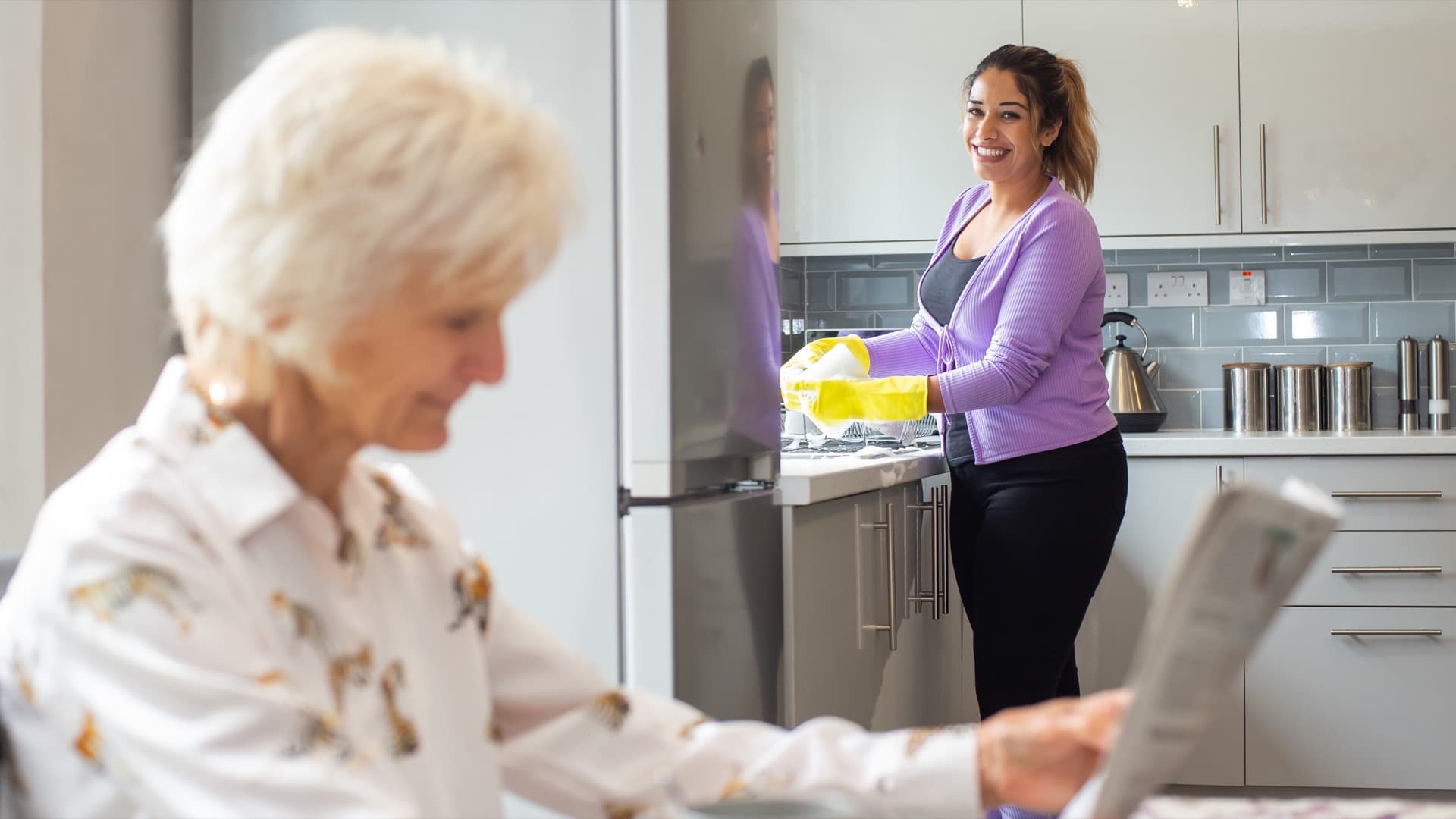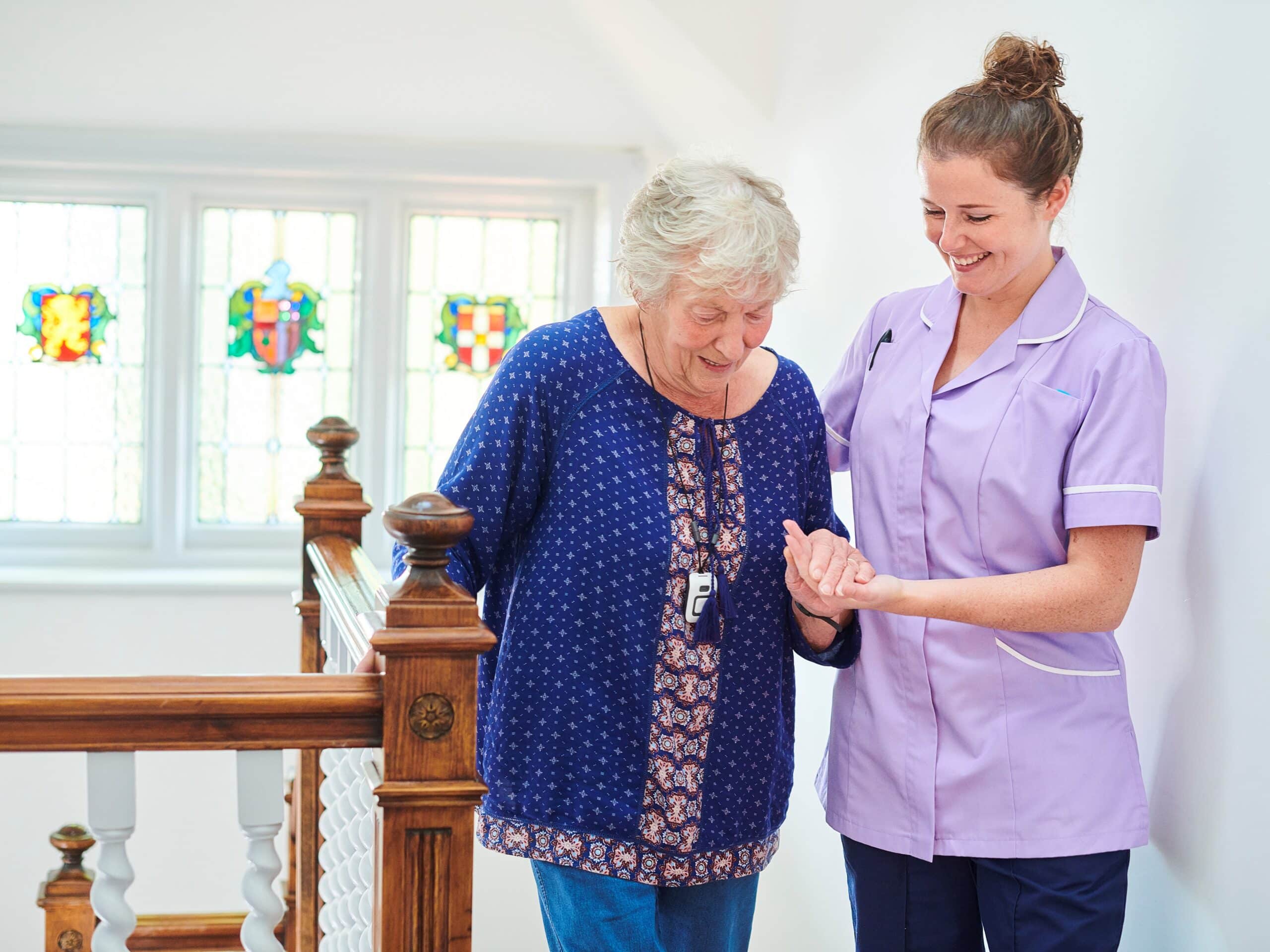What is integrated care?
What does integrated care involve?
Integrated care is where organisations work together to provide the best support for an individual.
Rather than working to different support plans and not communicating with one another, integrated care aims to put the individual at the centre of their care plan, with different professionals who are involved in their care working seamlessly together to achieve the same outcomes.
The main aim of integrated care is to provide person-centred support that is joined up in its approach, so that the individual feels valued, listened to and all of their needs – physical, mental and emotional – are adhered to.

What is an integrated care organisation?

An integrated care organisation is any professional body that is involved with an individual’s integrated care plan. This could be from the NHS, a private health provider, the local council or charities. Here are some examples of individuals who may be involved in an integrated care plan:
Private carer
Social worker
Physiotherapist
GP
Charity worker
Housing support officer
Mental health worker
Occupational Therapist
A holistic approach to care
The parties involved take a holistic approach to integrated care.
Those involved with someone’s care may change as their needs alter – for example, if someone is recovering from a serious illness that has affected their mobility, they may need round-clock-care and regular monitoring by a district nurse to begin with, with additional help from a physiotherapist to get them mobile again. However, as they start to get better, their care hours may reduce, and they may only need checkups from their GP once a week. This allows for fluidity between the different services that someone may require, giving them the most holistic care to suit them.

What is an Integrated Care Pathway (ICP)?

An Integrated Care Pathway sets out a person's needs and care plan.
An Integrated Care Pathway (ICP) is essentially a detailed care plan that describes the individual’s physical, clinical and emotional needs, and sets out the necessary steps to take in order to care for them in the best way possible for the individual. ICPs should be easy to understand for both the professionals and the individual, allowing for any issues that need to be discussed to be dealt with at the earliest stage. What’s important about an ICP is that the timeframe given for care and therapy to take place is suitable for the individual and is something that is achievable; knowing when and where things are going to happen can alleviate lots of anxiety for the individual and their families, so having a plan in place can really help with mentally preparing and processing their care.
The aim of an ICP
The aim of an ICP is to have the right professionals in place at the right time.
The aim of an ICP is to ensure the right experts are in place for the individual at the times when they need them, so that they can work together to achieve the same set of outcomes. Whether they work for the local council or NHS should make no difference; they are ultimately working collaboratively to integrate both health and social care for the same individual, putting that person’s health and well-being at the forefront of everything they do.

Why is joined up care important?

Previously, individuals who had lots of care needs described how they grew tired and frustrated with having to repeat themselves to different healthcare professionals, wanting them to have an understanding of their ongoing needs from the outset rather than catching up every time they saw them.
Joined-up care now showcases how a variety of different professionals can work together, with the individual in question at the centre, to all create a comprehensive plan to better the individual and their well-being. When any decisions are made, the multi-disciplinary team – that is, everyone involved in that person’s care, including the individual where possible – meet to decide on the next step of action. For example, if someone is being discharged from hospital after a serious injury, everyone will meet to decide on a discharge plan that incorporates their medical care, health care, social needs and mental well-being.
Enabling collaboration
Joined-up care enables different health care teams and organisations to work together more closely and holistically for the benefit of the individual receiving support
Personalised care
Joined-up care also allows the individual to receive care that caters for all of their needs from one plan, rather than lots of different care plans
Condition-led support
Joined-up care is particularly important for someone with complex care needs who requires several different specialists involved, i.e. different consultants
How to arrange integrated care
We aim to make it easy to arrange the support you want so that we can focus on what really matters: your care needs. Speak to our team today to begin your journey.
Speak to our team
Call our team of experts to talk through your options and any questions you may have
Free home care assessment
Your local Helping Hands manager will visit you to discuss your care requirements
Find your carer
We’ll help to match you with a carer who meets your preferences and has the right skills